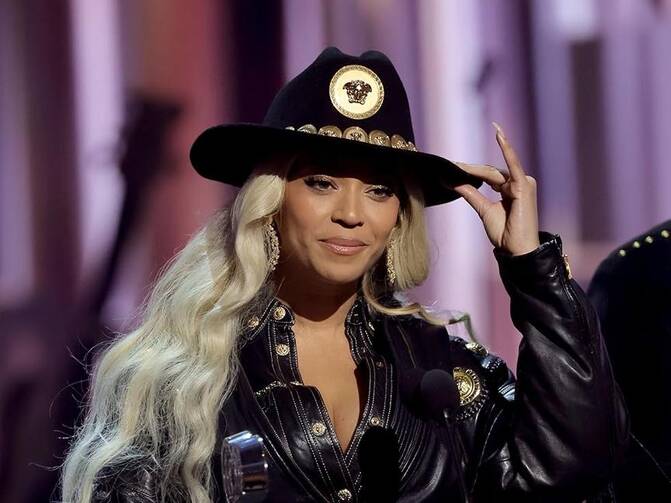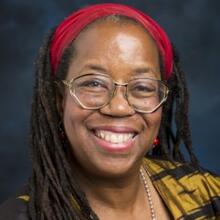“Life is hard. God is real. Whiskey, roads, and family provide worthy compensations, and the past is better than the present.” To this basic description of the country music genre, Alice Randall, an award-winning African American country songwriter, best-selling novelist and professor, adds a critical distinction in her book My Black Country: A Journey Through Country Music’s Black Past, Present, and Future. According to her experience and research, that final truth—about the significance of the past—is one of the instances in which country music exhibits a racial split.
In the world of white country music, “the past that is better than the recent exists in a longed-for and lost mythical Dixie. In Black country music, the past that is better than the present exists in a longed-for and lost Africa before colonization.” Part of what also was lost, reflects Randall, is the deep Black past in country music; the roots and branches, the songs, the music makers and the collaborations in which Black country musicians expertly participated as well as the history and experience of the African American communities from which these musicians emerged.
With “Cowboy Carter,” her eighth studio album, Beyoncé not only explores the longed-for and carelessly and/or intentionally erased Black past in country music, but also moves the genre forward into a hopefully more expansive future. Her lyrics, musical productions and choices of collaborators, such as the incomparable musician and unabashed advocate for the promotion of the African and African American roots of the banjo, Rhiannon Giddens, as well as the accompanying videos, exhibit much more than “three chords and the truth,” as oft-quoted country songwriter Harlan Howard described country music.
As a performer and cultural commentator, Beyoncé continues to mine the stories of her ancestors within the African American and Creole experience, as well as in the current context and history of a wider and racially polarized American landscape. This musical and historical unearthing is an act of “Sankofa,” a Twi word from the indigenous Akan tribe of Ghana in West Africa. The phrase loosely translates as “go back and get it.” The concept of Sankofa encourages learning from the past to inform the future, reaching back to move forward and lifting present and future generations as we climb.
“Cowboy Carter” truly represents a “Sankofa” moment for African Americans and a diversity of music lovers who appreciate a variety of styles, as well as for country music enthusiasts, many of whom remain skeptical of the sincerity of Beyoncé’s latest foray into the genre.
Beyoncé and devoted fans remember with frustration the 2016 rejection of “Daddy Lessons” from Grammy award consideration in country music categories, even though Beyoncé and the group then known as the Dixie Chicks (now just The Chicks) performed the song together for the Country Music Awards telecast that same year. Yet despite past disappointment, Beyoncé took her time and moved forward to continue making music informed by her Texas roots. In “American Requiem,” the first song on “Cowboy Carter,” she sings:
They used to say I spoke ‘Too country,’
Then the rejection came, said I wasn’t country ‘nough.
Said I wouldn’t saddle up,
But if that ain’t country, tell me, what is?
Plant my bare feet on solid ground for years.
They don’t, don’t know how hard I had to fight for this,
When I sing my song.
The first few times through, hearers should listen to “Cowboy Carter” in the order offered by the artist. Beyoncé not only narrates her past experience but goes on to boldly announce a time of change and “big ideas” in the lyrics of “American Requiem.” She challenges listeners to hear her, through their “fear,” moving beyond the “rejection” and “chatter” to find a way to stand together, “face the wind” and “let love in.”
In her remaking of Paul McCartney’s iconic Beatles hit “Blackbird,” next in the order of song, Beyoncé highlights the voices of up-and-coming Black country artists Tanner Adell, Brittney Spencer, Tiera Kennedy and Reyna Roberts. It is touching to watch young Tiera Kennedy burst into tears in an interview, rejoicing over her inclusion on the track. Beyoncé’s cover of McCartney’s classic also encourages curious fans to explore the history of the “Little Rock Nine” in the civil rights movement. These Black teenagers in Arkansas faced intense, violent opposition as they integrated the previously segregated Little Rock Central High School in 1957. The students’ courage, particularly that of the young women, originally inspired McCartney’s song.
“Cowboy Carter” is certainly not the first time Beyoncé has used her music to reach back into history while challenging current racially motivated oppressive realities. My students in a class on Black Liberation Theology at Loyola Marymount University often voice surprise as we watch the YouTube video of Beyoncé and Kendrick Lamar performing her song “Freedom,” from her 2016 album “Lemonade,” during the 2016 BET Awards. “Freedom” is a modern-day spiritual.
As Beyoncé sings “I’ma wade, I’ma wave through the waters./ Tell the tide, ‘Don’t move./’ I’ma riot, I'ma riot through your borders./ Call me bulletproof,” her dancers march down the center aisle of the theater and splash through a pool of water on stage. They are outfitted in costumes reminiscent of uniforms worn by freedom activists and community-organizing Black Panther Party members in 1960s Oakland, Calif.
The lyrics of “Freedom” hearken back to the historic Negro spiritual, “Wade in the Water,” a secret code song prominent in the Underground Railroad actions and civil rights movement. In her words, music and performance choices, Beyoncé brings these historic moments and movements for freedom forward to comment on and inspire actions supportive of the African American community’s ongoing needs for freedom. Eventually, this song moved from the stage into the streets as political artists and activists sang stanzas of “Freedom” during the 2020 protests after the murder of George Floyd.
“A common way to define country music is that it is an American folk music that has Celtic, African and Evangelical Christian influences,” Randall writes in My Black Country. In addition to evangelical inspirations, Beyoncé adds influences of Roman Catholic origin in “Cowboy Carter.” She calls for a priest to forgive her soul in “II Hands II Heaven.” The lyrics of “Daughter” invite the listener to “travel to white chapels” to “sing hymns, hold rosaries” and to “sing in stained-glass symphonies.” The spirituality inherent in the album, however, is more than lyrical references to prayers and pleas to the Holy Trinity to cleanse the marijuana smell from her hair, as she sings in “Daughter.”
Servant of God Thea Bowman describes spirituality as “faith lived,” encompassing “the totality of personal and collective responses to religious belief.” In living out the faith of the United Methodist and Roman Catholic influences of her childhood, Beyoncé encourages justice in “Cowboy Carter”—that is, right relationships, reconciliation between persons and a recovery of the recognition deserved for those who have been dishonored, oppressed and forgotten, such as Black cowboys. She sings in “American Requiem”:
Say a prayer for what has been,
We’ll be the ones that purify our father’s sins.
American Requiem.
Them old ideas (yeah)
Are buried here (yeah)
Amen (amen).
It has been many years since I took a deep dive and swam end to end through pools of vision, creativity and purpose filled by one artist’s album. I look forward to continuing to ply these waters, retrieving and expanding my knowledge and appreciation of Black country’s past, present and future—not to mention adding a few new and old country music tunes to my study, play and performance lists.








